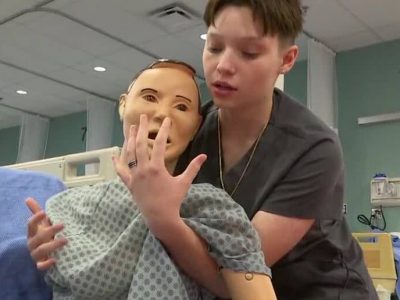Last week, Moderna announced that it had begun dosing the first participants in Phase I clinical trials for an HIV vaccine based on the same mRNA technology as the company’s COVID-19 vaccine.
The company says that the trial, which is being conducted in collaboration with the nonprofit International AIDS Vaccine Initiative (IAVI), should confirm whether the vaccine can deliver HIV-specific antigens to the body and induce an immune response.
Researchers will study 56 HIV-negative adults for six months.
Forty-eight volunteers will receive at least one dose of the primary vaccine, with 32 receiving a booster as well. The other eight will only get the booster vaccine.
The first participants were recently immunized at the George Washington University School of Medicine and Health Sciences in Washington, D.C.
mRNA strands enter human cells and put our immune systems to the test in mRNA-based vaccines like the one being tested.
This informs immune cells about what to expect if they come into contact with a virus.
The mRNA process is extremely effective against SARS-CoV-2, and there is hope that it will also be effective against HIV.
“We are tremendously excited to be advancing this new direction in HIV vaccine design with Moderna’s mRNA platform,” Mark Feinberg, president, and CEO of IAVI said in a statement. “The search for an HIV vaccine has been long and challenging, and having new tools in terms of immunogens and platforms could be the key to making rapid progress toward an urgently needed, effective HIV vaccine.”
Researchers have been looking for a vaccine to protect against HIV for a long time.
While various HIV treatments have come a long way in recent years, the virus is notoriously difficult to vaccinate against.
Within 72 hours of transmission, the virus integrates itself into the human genome, resulting in an irreversible infection.
Many previous vaccine attempts advanced to the clinical trial stage before failing due to the inability to generate high enough protective antibodies at a fast enough rate to completely prevent infection.
















